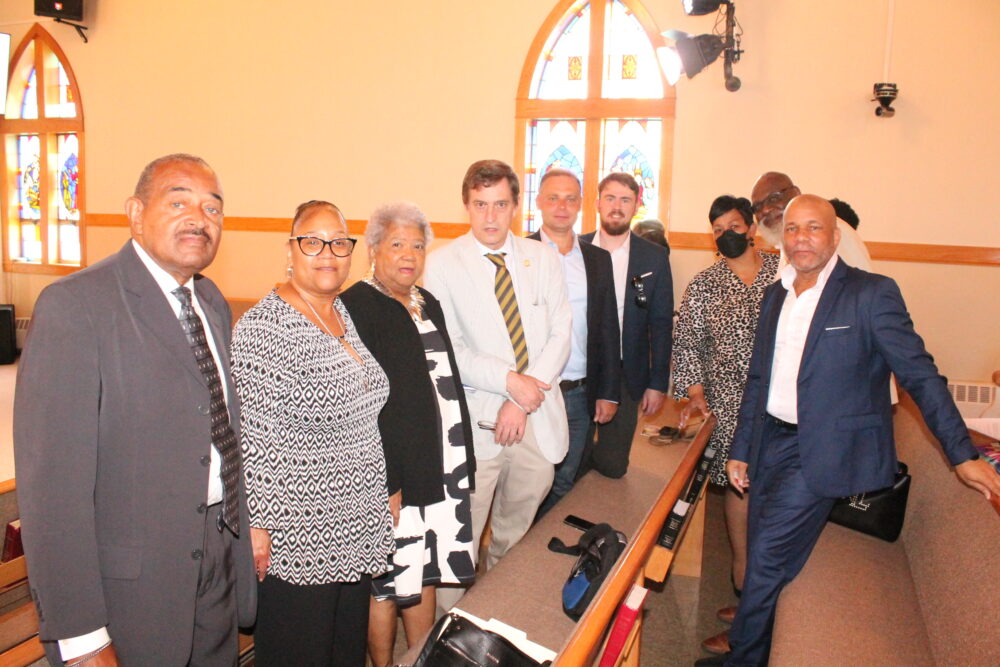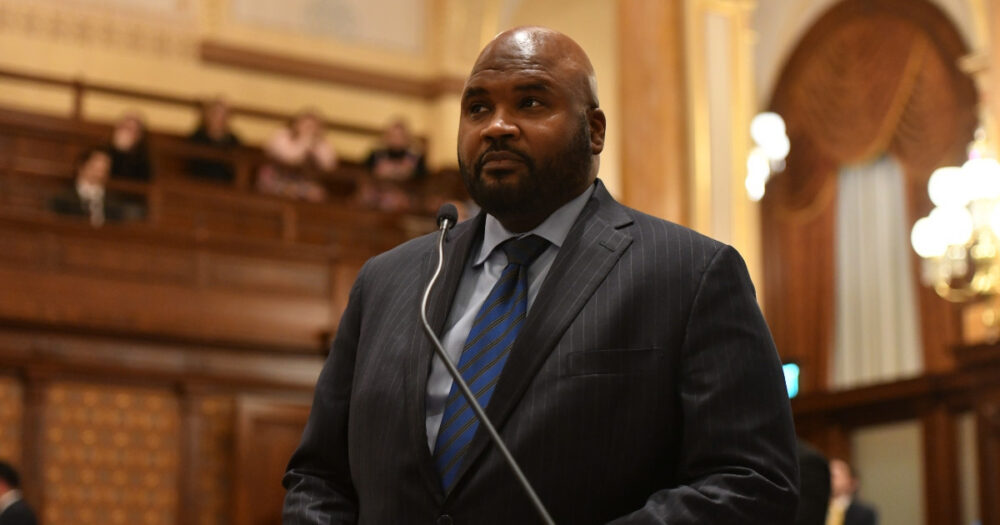Dr. Tokoya Williams wanted to be a cardiac surgeon when she began medical school.
But when she was diagnosed with breast cancer during her last year of medical school — leading to chemotherapy, a double mastectomy and breast reconstruction — she was forced to put that plan on hold.
Advertisement
From that experience, however, a new idea for her future emerged.
“As I was progressing through my journey with breast reconstruction, I realized that’s what I wanted to do for a career,” said Williams, of Hyde Park. “The reconstruction was the one part that made me feel happy again.”
Advertisement
She decided to pursue plastic surgery to help other women with breast reconstruction after cancer, including Black women like herself who tend to undergo reconstruction at lower rates than white women. Now, about 10 years after she first found a lump in her breast, she’s working as a postdoctoral research fellow for one of her own plastic surgeons, Dr. Robert Galiano, at Northwestern Medicine. She’s helping with his research into racial disparities in breast reconstruction.
Breast reconstruction is surgery to recreate the breasts after a mastectomy, which is when one or both breasts are removed, often due to cancer. It’s a procedure that’s covered by health insurance after a mastectomy, and has been shown, in many cases, to be important to women’s psychological well-being after breast cancer. About 43% of patients with breast cancer underwent breast reconstruction in 2014, according to an article in the journal The Breast.
Patients seeking breast reconstruction have several options, including using implants or using tissue from elsewhere in their bodies. As part of the decision-making process, patients often view photos to get an idea of how each option might look.
Williams noticed, however, while considering which route to take for her own reconstruction, that it was difficult to find images of women of color who’d undergone the procedures.
“I found I really struggled to find representative photos of what different types of reconstruction would look like for me,” Williams said.
Galiano had also noticed a lack of pictures of women of color. He already knew that Black patients underwent reconstruction at lower rates than white patients. One 2017 study out of the University of Pennsylvania found that even when women of color had private health insurance and lived in areas with many plastic surgeons, they still had breast reconstruction rates that were 25% lower than white women.
Galiano and his students and residents looked into the lack of photos, and found that only 6.7% of 2,580 photos of breast reconstruction posted by plastic surgeons on social media and websites were of nonwhite patients, according to a paper published in the peer-reviewed journal Plastic and Reconstructive Surgery late last year.
“It hinders the Black patient’s ability to make a fully informed choice if you can’t see photos that represent what you might look like at the end of this,” Williams said.
Advertisement
Williams and Galiano suspect issues related to scarring may be part of the reason for the lack of photos. For reasons that still aren’t fully understood, Black patients often tend to have more visible scars after surgery than lighter-skinned patients, Galiano said.
“My guess is we as plastic surgeons, we basically are image-oriented,” Galiano said. “We really only present our best efforts. … One thing that makes for a visually appealing result is if the scars are good quality and not prominent, not visible. The problem is women of color, just by virtue of biology, tend to have more conspicuous scarring, at least early on.”
But posting only photos of white women who undergo reconstruction “does our patients a disservice,” he said.
Now, Williams is working with Galiano studying ways to address disparities between patients of different races in breast reconstruction. In his paper, Galiano and his residents and students speculated that it’s possible Black women get reconstruction at a lower rate than white women because of more visible scarring, socioeconomic factors, a feeling among some communities that plastic surgery is taboo, or a lack of appropriate consultation before surgery.
Williams is now working on a computer program that patients could watch as they’re considering their options for reconstruction, and looking at how that program might help women of color in particular. And she’s working with Galiano on how to improve scarring.
“When you feel like you have a mission in life, you work harder and you feel passionate,” Galiano said of Williams. “She’s making the most out of her disease, out of her experiences and her adversities and trying to make it easier for the women who come behind her.”
Advertisement
Williams is also hoping she can help address the disparities partly by becoming a plastic surgeon herself. Only about 3.5% of plastic surgery residents were Black as of 2014, according to a study published in the Journal of Surgical Education.
“I think if we had more surgeons of color who came from those groups, that would be one way to get rid of that disparity,” Williams said.
She’s still working toward that goal — even though it’s taken longer than she initially expected.
Advertisement
Williams, who grew up in south suburban South Holland, knew she wanted to be a doctor from a young age. As a violinist, she appreciated the dexterity required of a surgeon.
After Williams was diagnosed with stage 2 breast cancer, she underwent chemotherapy, necessitating that she pause medical school.
“Chemo was horrible,” Williams said. “It just really took a toll on me, and I just had to put myself back together again after that year.”
Breast reconstruction was one of the few things she looked forward to. To her, it represented a possible end to her experience with cancer and filled her with hope for the future.
“I was like, ‘This is where I want to be when I interact with patients, this happy moment,’” she said.
Her reconstruction, however, was not without challenges.
Advertisement
Williams had a number of complications, including capsular contracture, which is when hard scar tissue forms around the implant, causing pain and other issues. She had to have more than half a dozen revision surgeries, with the most recent done in 2019 by Galiano, who is an associate professor at the Northwestern University Feinberg School of Medicine in the division of plastic surgery. Galiano did not perform her original reconstruction.
Ultimately, Williams graduated from medical school at the University of Illinois Chicago a year later than she expected. Generally, people who want to become plastic surgeons can go straight into plastic surgery residencies after medical school or do general surgery residencies and then move on to plastic surgery training.
After medical school, Williams completed preliminary training in general surgery, research at Stanford University and a fellowship in burn surgery at Cook County Health. She now hopes to finish her training in the specialty of plastic surgery. Spots in plastic surgery residency programs are highly competitive.
When Galiano mentioned earlier this year, at one of Williams’ appointments, that he was looking for a research fellow, Williams knew it would be a good fit. She hoped it could help her progress toward becoming a plastic surgeon. And it was research into a topic about which she’s passionate.
Advertisement
“When you have to go back and have more and more surgeries it can be a challenge to put it behind you psychologically, so it takes a lot to stay strong and keep going for your goals in life,” she said. “Now I feel like I’ve finally arrived in a place where the work I do can be potentially impactful.”
Advertisement
Advertisement
Advertisement







